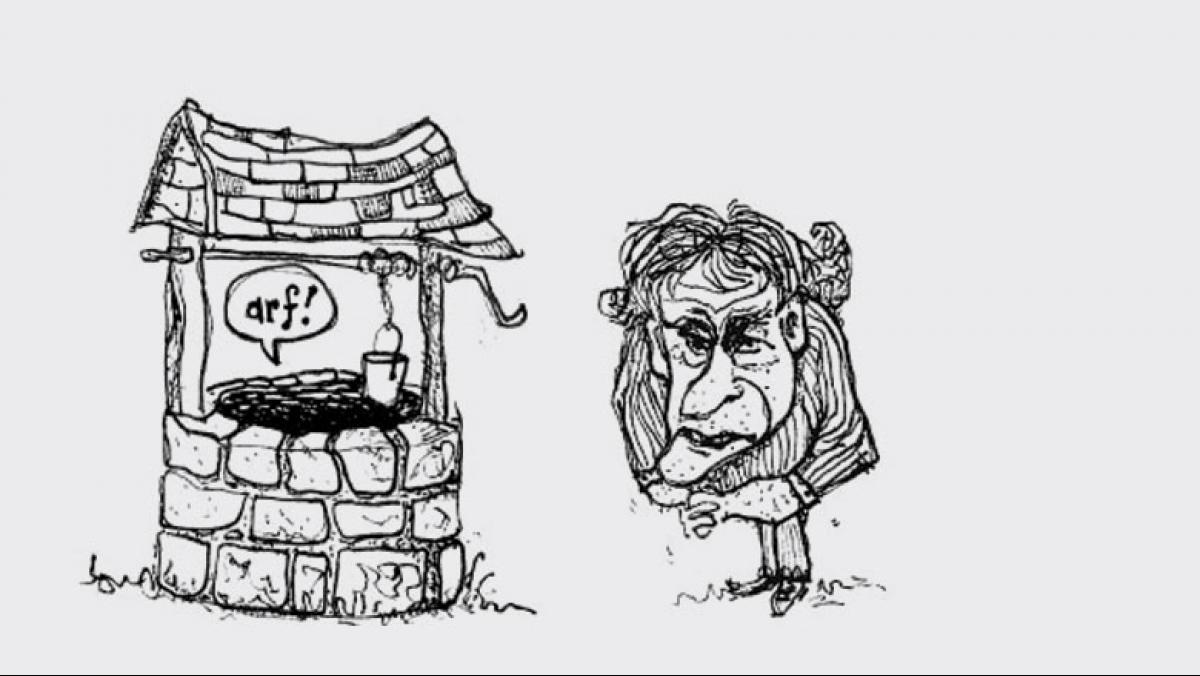The historian Barbara Tuchman once noted that dire events are five or ten times more likely than pleasant ones to find their way into history. A writer may sleep through a quiet time, but not through a disaster. In the same way, long after we have forgotten the many pleasant coworkers who shared a laugh at coffee break and remembered our birthdays, we recall in miserable detail the nasty, spiky, crazy one who set everyone else on edge. So it is not surprising to find that some of the most vivid, heartfelt, and interesting words or phrases picked up during Dictionary of American Regional English fieldwork refer to the least pleasant of people.
Dante, who knew something about unpleasant people, established a hierarchy for them in his Inferno. To judge from the color and vigor of their remarks, the people interviewed for the Dictionary of American Regional English (DARE)—whom we call Informants—likewise saved special consideration for some offenders. Six of the Seven Deadly Sins (for some reason we didn’t ask about Envy) are covered in the questionnaire DARE researchers provided to Informants.
However, we found that by far the most memorable responses are those having to do with Anger.
There may be a practical reason for this. Gluttony is an inward vice, and does not affect the observer. The same is mostly true of Avarice. And Sloth, unless you are a parent or an employer, disturbs no one. Lust is often focused on one object at a time, and so attracts limited attention. Pride does have an outward show, but is primarily self-regarding.
Anger alone is so diffuse in its objects, and, being directed violently outward, so impossible to ignore.
 Let us start small, with anger directed at the mildest of creatures. In response to the questionnaire lead-in, “He’s mean enough to ___________,” an Indiana Informant responds, “pinch a sensitive plant.” From Louisiana, “pull up young cotton,” and from emphatic Mississippi, “pull up young cotton and piss in the hole.”
Let us start small, with anger directed at the mildest of creatures. In response to the questionnaire lead-in, “He’s mean enough to ___________,” an Indiana Informant responds, “pinch a sensitive plant.” From Louisiana, “pull up young cotton,” and from emphatic Mississippi, “pull up young cotton and piss in the hole.”
A little further up the chain of being, we have “mean enough to push baby chicks in the creek” (or water), attested by five Informants. This turns strangely ineffective (or shows unconscious pity) with the seventeen Informants who say, “mean enough to push (throw) baby ducks in the water.” Finishing up the poultry, we have the wonderfully complex “mean enough to steal a blind chicken’s breakfast,” which, when you think about it, probably had to come from New York. For muscle, “mean enough to choke his own horse to death” (Minnesota) is very impressive. But the palm for downright meanness goes to Texas for “mean enough to push a widder woman’s dog in the well.”
>>><<<
Of course dogs are not the half of it, at least not for those with mothers and grandmothers. As high-value targets in the meanness game, Mom and Grandma are at the very top, and those mean enough to mistreat them lurk at the very bottom.
“Mean enough to kill his (own) mother” (or grandmother) is just about as mean as it gets (83 Informants), with the colorful “cut (or chop) his (own) mother’s (or grandmother’s) head off” thrown in here and there for variety. “Mean enough to sell his grandmother to the glue works” (Minnesota) seems to combine business with pleasure. The disturbingly specific “kill his grammaw downstairs” is from California. Somewhat surprisingly, “screw his own mother (grandmother)” occurs only once in each case. (Remember, though, that the fieldwork was done between 1965 and 1970.)
Those restrained by filial devotion merely “hit,” “whip,” “kick,” “beat,” or “throw rocks at” Mom or Grandma, or hit her with a shovel (New York). Slightly better (or worse), the unnatural grandchildren may become litigious. There is the popular “mean enough to sue his momma” (South Carolina), “arrest his own mother (or grandmother)” (8 Informants), “throw his own mother in jail” (Pennsylvania), “give his own mother a ticket (New Jersey), or in a twofer, “put his mother in jail and throw in his sister for company” (Florida).
 So what are these people eating that makes them so mean? The DARE findings suggest that ferrous poisoning may be a factor, but cause and effect are hard to distinguish here: With 54 Informants, “Mean enough to chew (or bite or eat) ten-penny (or twenty-penny) nails (or spikes)” certainly shows a pattern. Some “chew nails and spit rust” (or tacks), but the most ambitious “spit submarines” or “battleships” (both New York)
So what are these people eating that makes them so mean? The DARE findings suggest that ferrous poisoning may be a factor, but cause and effect are hard to distinguish here: With 54 Informants, “Mean enough to chew (or bite or eat) ten-penny (or twenty-penny) nails (or spikes)” certainly shows a pattern. Some “chew nails and spit rust” (or tacks), but the most ambitious “spit submarines” or “battleships” (both New York)
Other contributing causes are suggested by “mean enough to eat glass,” “eat shit,” “eat shit with a stick,” and “eat shit and bark at the moon” (New York, again). Biting is a related phenomenon, as in “mean enough to bite a snake,” “bite you,” “bite your head off,” or “bite him own self” (sic) in North Carolina. “Mean enough to take your eye out and eat it for a grape” (Illinois) falls outside any category, and “mean enough to wipe his ass with sandpaper” (Pennsylvania) is another one of those cause-and-effect puzzlers. “Mean enough to fart in a pail of water” (New Jersey) will keep you awake at night trying to figure it out.
After dinner it’s time for (what else?) a good rousing fight. Our contenders are not only tough enough to tangle with the customary “bear,” “bull,” and “buzz-saw,” but in some cases to meet them armed with only a stick. “Mean enough to fight the Devil” (Alabama) seems plenty mean, but according to one Pennsylvania Informant, the ne plus ultra is “mean enough to fight Gene—he’s the baddest dude in the world.”
>>><<<
But let us take a step back for a moment. In each of these descriptions we have been assuming an unconscious identification with the bad guy: what is he mean enough to do? How does he act? We put ourselves in his place. In one of those reversals that proves that genius lies in looking at things in a new way, two Informants from Arkansas put the matter in different (and practical) terms: “He’s mean enough to need killing.”
 The foregoing gives us something of a picture of meanies at work (or play, depending on how you think about being mean). But what about when they’re just sitting around? “He’s mean enough to ___________” elicits characteristic actions, but the DARE question “He’s meaner than ___________” calls for description and comparison. “Meaner than the Devil (or Satan) (himself),” and the like, with 307 responses, would reassure the Prince of Darkness that he is still the villain to beat, with Kaiser Bill, Judas Iscariot, Hitler, and “Nero when Rome burned” making only a poor showing behind him. “Meaner than my wife” (New York) gives one pause, though.
The foregoing gives us something of a picture of meanies at work (or play, depending on how you think about being mean). But what about when they’re just sitting around? “He’s mean enough to ___________” elicits characteristic actions, but the DARE question “He’s meaner than ___________” calls for description and comparison. “Meaner than the Devil (or Satan) (himself),” and the like, with 307 responses, would reassure the Prince of Darkness that he is still the villain to beat, with Kaiser Bill, Judas Iscariot, Hitler, and “Nero when Rome burned” making only a poor showing behind him. “Meaner than my wife” (New York) gives one pause, though.
“Meaner than itchy underwear” (Texas) and “mean as his hide will hold him”(Georgia) show the uses of poetry in expressing a deep truth, as do “meaner than gar broth” (Indiana and Wisconsin), “meaner than skunk meat“ (also Wisconsin), and “meaner than turkey-turd beer” (Maryland). As to the last, there really is such a thing, as Volume 5 of DARE shows.
These instances show a semantic shift from the mean of the previous question. Here, meaner is also taken to signify “unpleasant” or “nasty” in the sense of disgustingly offensive. Right at the top of that list has to be “meaner than a peck of assholes,” followed by “owl’s shit” (or “a bucket of sour owl shit,” as my father used to say). Shit in general, but especially cat shit is an index of this kind of meanness (as in “meaner than cat shit and a damn sight nastier”[New Jersey]), though the scientific thinking behind “lower than whale shit” (Pennsylvania) (or as I once heard it, “lower than the whale turds on the ocean floor”) has to be admired.
>>><<<
So what, if anything, does this add up to?
I have to say that I chose this subject because I thought it would be fun to look at. I enjoyed compiling this record, and I cannot escape the notion that most of the Informants here enjoyed giving their responses. Their language not only shows them having fun; there’s something else going on, too. Maybe when we can get a little distance from the people who make us crazy, it isn’t just exasperation but a kind of head-shaking admiration we feel. And maybe the way to account for that is to admit that sometimes they do what we’d like to.





